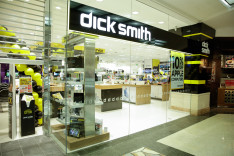2015 Annual: Good year, bad year
As 2015 comes to an end Mumbrella takes a look at the people and brands which will want to remember it for a long time and those who can’t wait to forget it.
Bad Year
Dick Smith
 Like the adventurer who gave the business his name, Dick Smith electronics has trodden a challenging path in 2015, trying to keep the investors in the stock market happy while keeping the customers flowing through its doors.
Like the adventurer who gave the business his name, Dick Smith electronics has trodden a challenging path in 2015, trying to keep the investors in the stock market happy while keeping the customers flowing through its doors.
As competition from retailing rivals kept the pressure on, the brand found itself overwhelmed with surplus stock and profit warnings saw the value of the business slip by 60 per cent.

